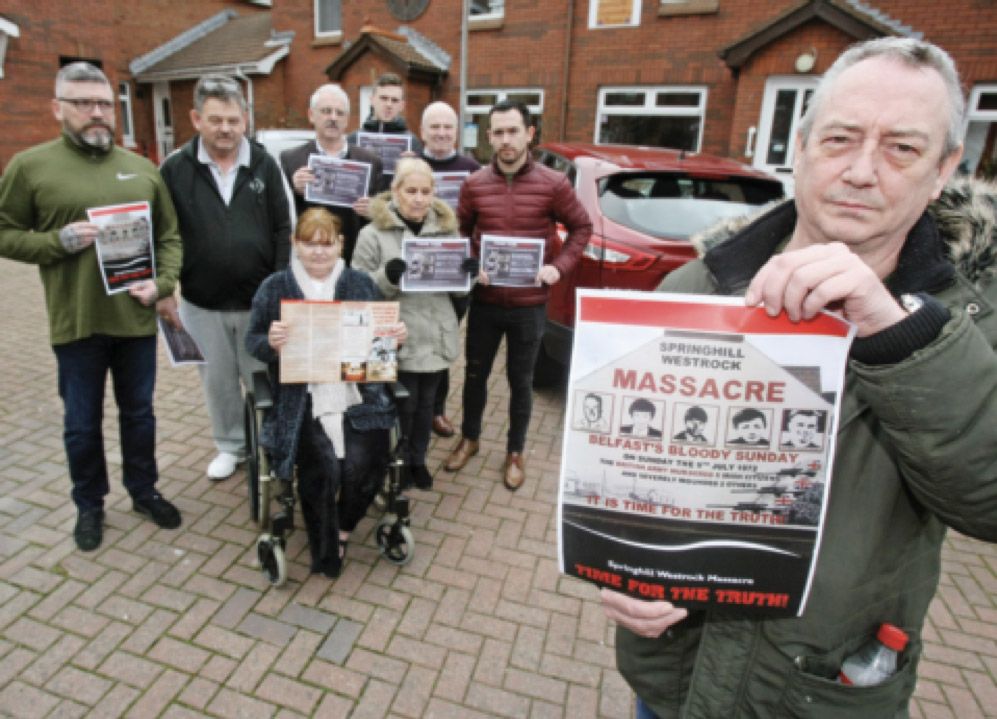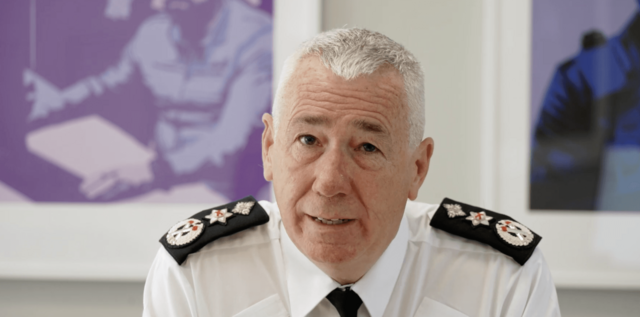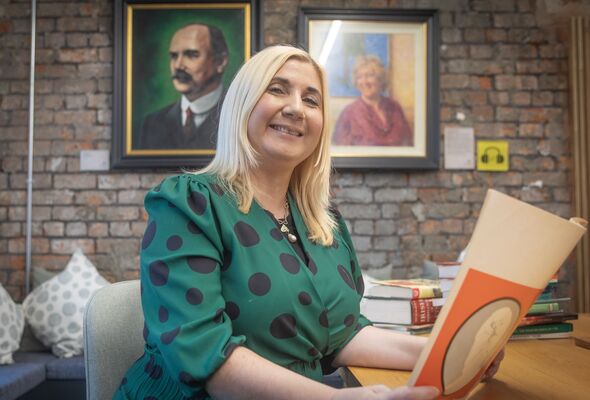AS this summer of remembrance continues the catalogue of conflict anniversaries give us pause to remember.
On just one evening last week families in Springhill, the Falls Road and Ardoyne were joined to remember Fr Fitzpatrick, Paddy Butler, Margaret Gargan, John Dougal, David McCafferty, Norah McCabe and Danny Barrett. Adding to the sense of loss was the known truth that not one of these families has received due legal process.
All of these families are currently engaged in fighting the myriad of obstacles placed in the way of families affected by British state killings. The killing of a loved one by the British state is accompanied by an experience of violent impunity that adds to the absolute horror and grief.
In the debate on the past refusing to accept criminalisation is at the heart of the British intransigence families face. If the British state is officially guilty of heinous crimes that changes the official narrative of the conflict.
Since the foundation of the northern state victims of state violence have experienced a denial of justice because the British state needs to justify their actions in Ireland. The state uses language and systems of discrimination to portray entire communities as “guilty” for just being Irish citizens in their own country. When these citizens rightly protested, they were beaten and shot off the streets.
The savagery meted out in Derry on Bloody Sunday, and in Ballymurphy when internment was introduced, resulted in many thousands of young men and women deciding to join non-state organisations in response. The following decades became the “long war” in which there was incalculable pain and loss.
In 1980 and 1981 some of these young men and women went on hunger strike. The harrowing deaths of ten hunger strikers and the intransigence of the British government led to an unprecedented response on the streets, and the British state met that response by killing with plastic bullets and live rounds. The British state killings of Norah McCabe, Danny Barrett and too many others are part of the story of 1981, just as much as the sacrifice in the prisons.
Despite this inhumanity these communities stated clearly that we are not terrorist communities and supported the struggle against criminalisation.
In the debate on the past refusing to accept criminalisation is at the heart of the British intransigence families face. If the British state is officially guilty of heinous crimes that changes the official narrative of the conflict. So, there is an attempt to perpetuate a language of “innocent victims”. Those who are worthy of law and those who are not. This is a deliberate tactic which vindicates the British state narrative. No British soldier or RUC officer has ever been “guilty” in this debate, because the law is used to law shield them. By contrast, the tens of thousands of young men and women who decided to respond to state murder on their own streets are readily portrayed as “terrorists” or “guilty”.
This deliberate policy deletes necessary contextual, complex conversations. It ensures the families who saw one loved ones in prison while others were killed are erased, ensures any family whose loved was killed on active service is rendered voiceless, ensures that we never ever truly achieve equality for all victims. It is vital for families to rewrite the lies of the British state. It is vital to say when the state targeted civilians. However, in that journey it is critical that the British state narrative of “innocence” and “guilt” is not promoted. We have our own language and that is the language of law, not inequality.








